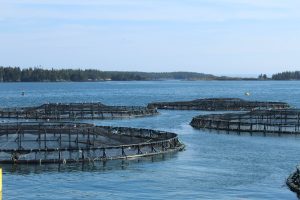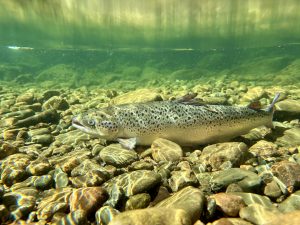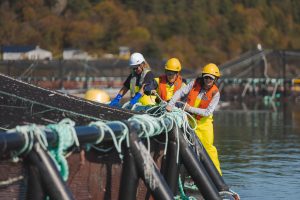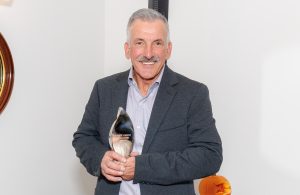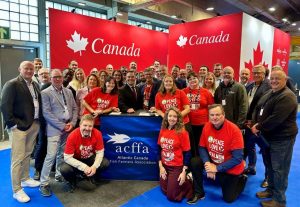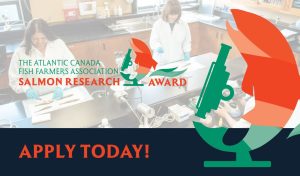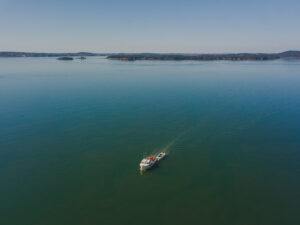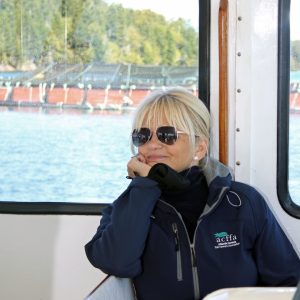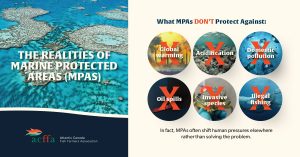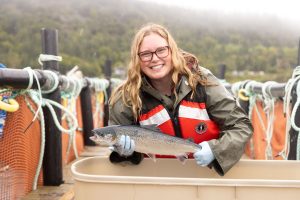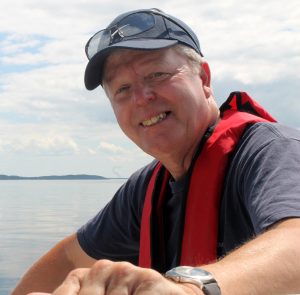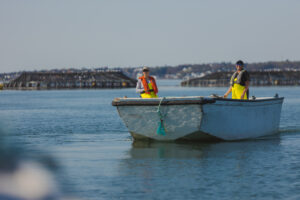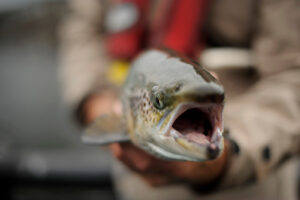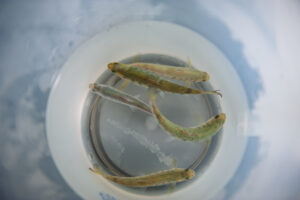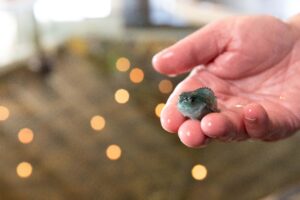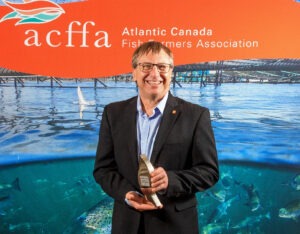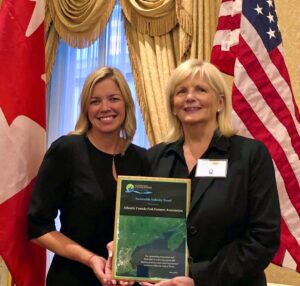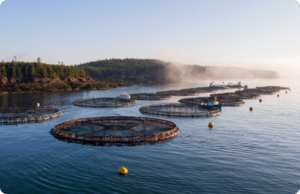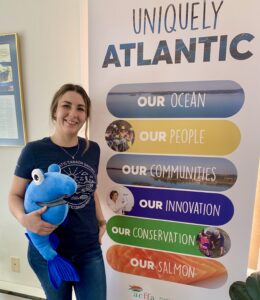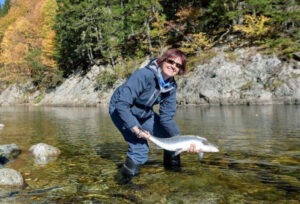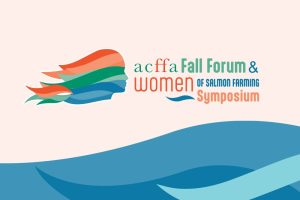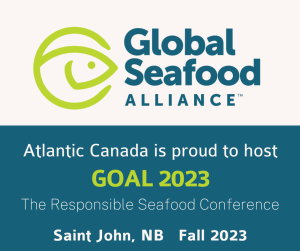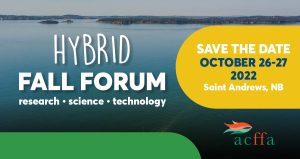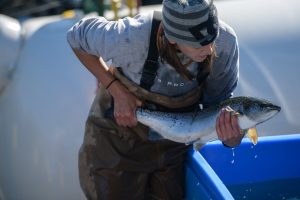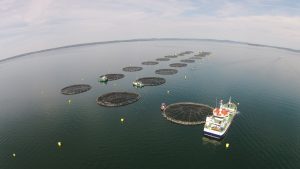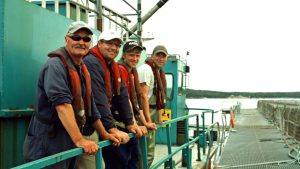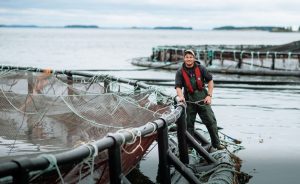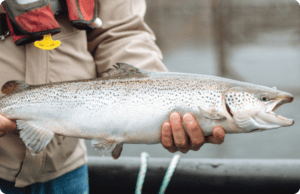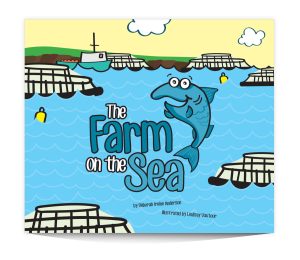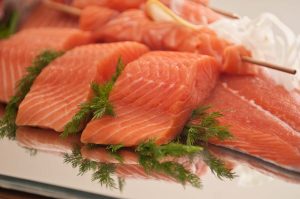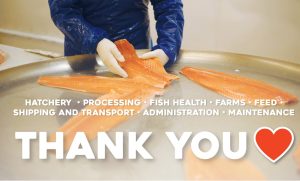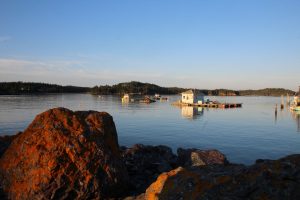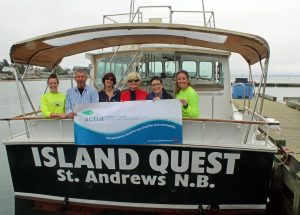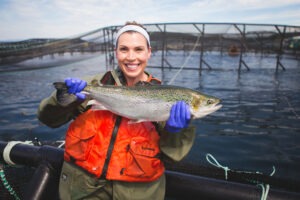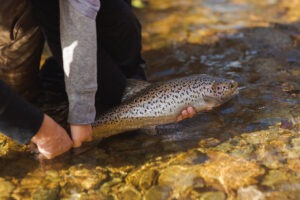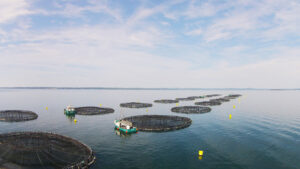But if we truly want to have meaningful and productive conversations about salmon farming, they must be based on facts. One of the most common criticisms against salmon farming is the accusation that farms negatively impact lobster populations. The numbers, however, tell an important story.
In 2017 in Atlantic Canada, we saw the highest lobster landings ever recorded. Fishermen hauled in 97,452 MT of lobster, which is more than double the 47,853 MT caught in 1990. For nearly 30 years, Atlantic Canadian lobster landings have been on a steady upswing, including in Nova Scotia. In fact, in 2017, Nova Scotia fishermen caught 49,931 MT of lobster – the second highest amount since 1990. Atlantic Canada’s lobster boom is good news for everyone. Fisheries and Oceans landings data is a primary indicator of lobster abundance in the region. And now, we’ve got more science-based research to add to the conversation.

Last month the results of a multi-year project that studied the lobster population under and around a salmon farm in Grand Manan, NB was published in the Canadian Journal of Fisheries and Aquatic Sciences. The most in-depth examination of its kind, this peer-reviewed study found that aquaculture operations had no impact on lobster abundance, size or growth. The Atlantic Canada Fish Farmers Association provided funding to support the study and Dr. Jon Grant, NSERC-Cooke Industrial Research Chair in Sustainable Aquaculture at Dalhousie University collated and prepared the data for submission and publication.
As part of the study, divers visited a sample area under a salmon farm off Grand Manan in 2008, a year before the farm opened to establish a baseline and returned every August and September for eight years. The study was conducted over two production cycles at the farm, which used approved treatments for sea lice and included a fallow period and an expansion from 10,000 to 336,000 fish. An identical survey was conducted about a kilometer outside the farm as a reference location. At the end of the study, divers had counted 1,255 lobsters inside the farm and 1,171 outside.
“In both cases, whether it was on the farm or off the farm, over those eight years the abundance of lobsters went up. A lot. By 100 per cent or more. And there was no difference in those lobsters in any way — in their size, in their sex or their abundance, whether on or off the fish farm,” Dr. Grant told CBC News.
All those facts are important to the aquaculture conversation. Our farmers know that pristine water is essential for growing high quality fish, so they follow the highest fish health management standards, use the best science and more than 40 years of farming experience to grow healthy, nutritious salmon. They rely on in-house veterinarians, biologists, oceanographic specialists as well as advice and oversight from provincial and federal regulators to develop best practices for fish health management, bio-security, and area management strategies that support responsible fish health and welfare standards.
We look forward to seeing more facts added to the conversation as a result of field work by the NS Department of Fisheries and Aquaculture and the Université Sainte-Anne Laboratory of Innovation in Science and Industry. Their field work will investigate fishermen’s concerns about and perceptions of the impact of finfish aquaculture on lobsters and lobster fishing communities in Nova Scotia documented in phase one of the study in 2015.
Modern salmon farming is an industry to celebrate and nurture for our region’s challenging future. Grasping its full potential in Atlantic Canada will take a collaborative approach that balances environmental, social and economic priorities. As always, our farmers will rely on the best science and technology to inform their decisions – just as it should be. I encourage everyone to seek out the facts on salmon aquaculture rather than relying on perceptions. https://www.atlanticfishfarmers.com/factsheets

